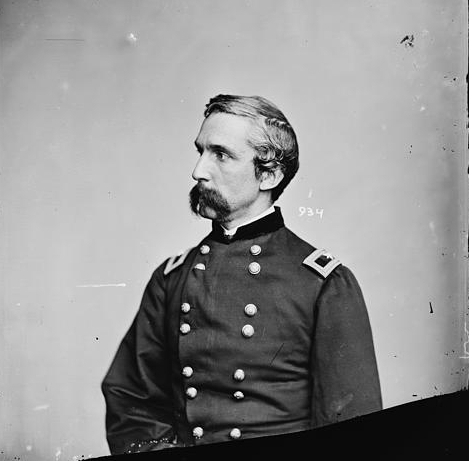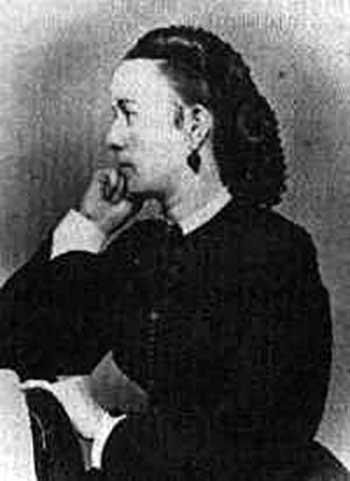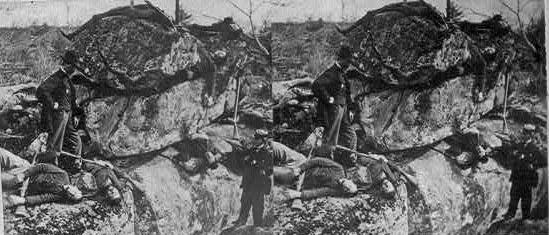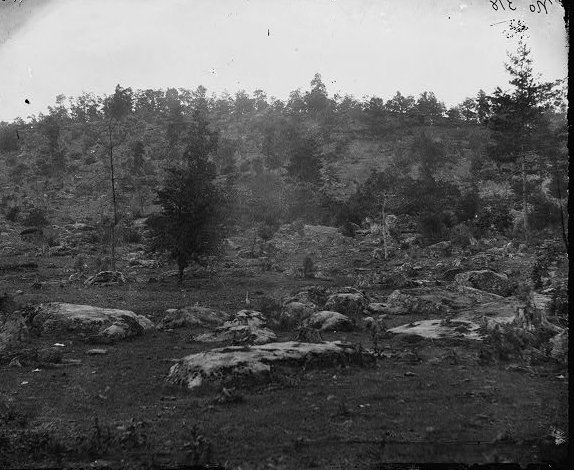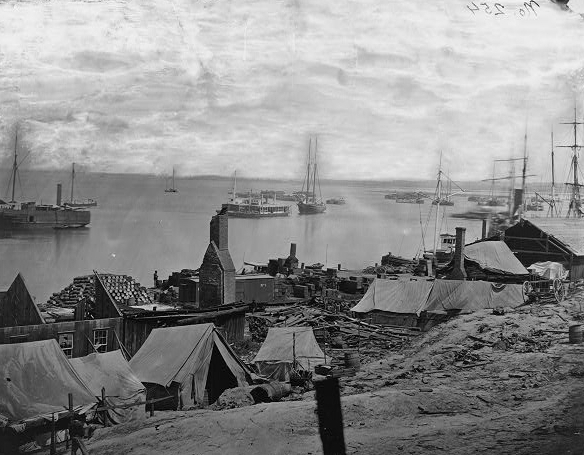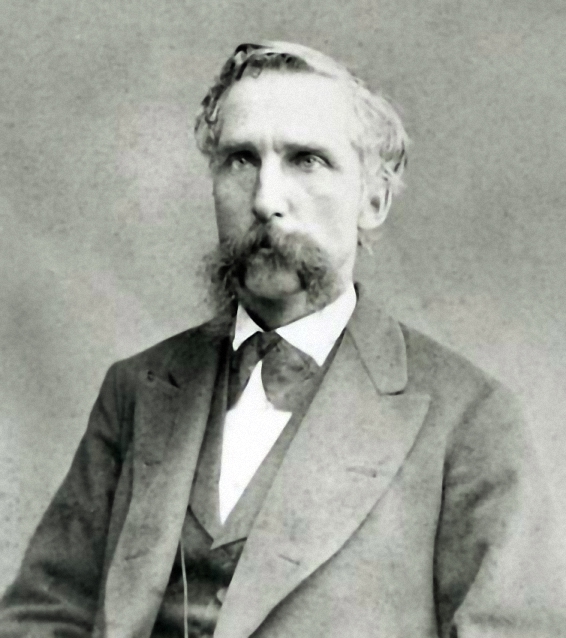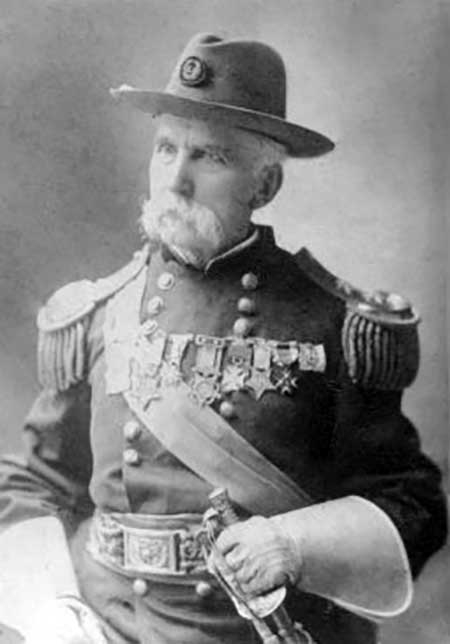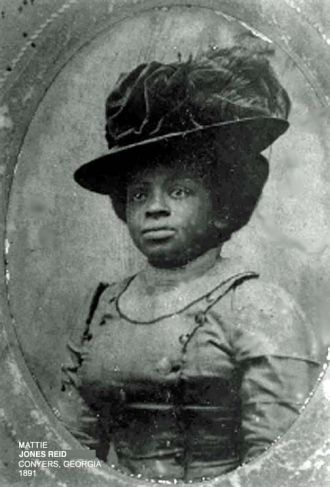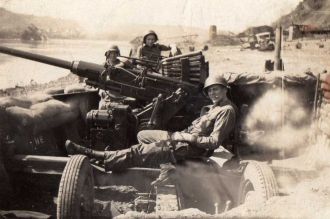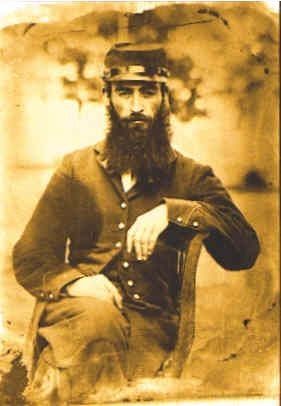
 AncientFaces
AncientFaces Born in 1828 Maine, he was the descendant of a woman accused of witchcraft – she died in jail in 1692. His great-grandfather fought in the Revolutionary War, his grandfather was a colonel in the War of 1812, and his father was second-in-command of Maine forces in the Aroostook War (against New Brunswick) in 1839. And yet, his first choice of career was academics – prior to the Civil War, he was a professor teaching natural and revealed religion at Bowdoin College, going on to also teach rhetoric and modern languages.
Fannie (Adams) Chamberlain
 Kathy Pinna
Kathy Pinna During this time, he married Fannie Adams with whom he would have two children who survived infancy – thankfully, as you will see in a moment.
In 1862, he followed the courageous example of his ancestors and enlisted in the Civil War as a lieutenant colonel. It was said of him the he was “no fighter” and that he "was not the only college professor in the Union army, but he was surely the only man in either army who could read seven languages: Greek, Latin, Hebrew, Arabic, Syriac, French, and German." The latter was true but the former was very far from the mark.
Little Round Top
 AncientFaces
AncientFaces On the second day of Gettysburg, his actions won him the Congressional Medal of Honor for the "daring heroism and great tenacity" of his regiment’s defense of Little Round Top – but he wouldn’t accept it until 30 years later. According to Lt. Col. Joseph B. Mitchell “If, on the afternoon of July 2, 1863 a less capable officer had been in command of the 20th Maine, the Battle of Gettysburg would probably have been a Southern victory. Of all the Congressional Medals of Honor awarded in the history of our country, that won by Joshua Lawrence Chamberlain is particularly outstanding.”
 AncientFaces
AncientFaces After Gettysburg, he suffered from PTSD and then contracted typhoid fever. While recovering he was assigned “desk duty” but became restless and as a result, he was assigned duty as brigade commander of the 1st Brigade, 1st Division, 5th Corps of the Army of the Potomac. And this is where his body, but not his spirit, was changed forever.
Siege of Petersburg
 AncientFaces
AncientFaces While leading his regiment as part of the siege of Petersburg, a ricochet bullet hit him in the right pelvis. Understand, this wasn’t a modern bullet –it was a “minie ball”, a hunk of lead. The ball went through his left thigh, smashed both hips, severed arteries, and pierced his bladder. He tried to fight on, leading his troops while leaning on his sword – which he had jammed into the ground. But the bleeding was too copious and he collapsed. (Surgeons said that "interior human organs tended to be torn apart by minie ball's hot path”.) He was carried off the field and newspapers reported that he was dead. But his agony had just begun.
Given the surgical techniques of the day, it’s amazing that he survived the ensuing ordeal. Halfway through surgery, the anesthetic wore off and he was screaming in pain. The surgeons quit operating but he encouraged them to continue. They did and succeeded in patching him up through heroic efforts and techniques that had never been done before. But urine was still leaking from his damaged bladder. In a letter, another General, after visiting him, reported “"His wound is severe, the ball severed the urethra so near the bladder that by no artificial means can all the urine be voided (urinated) without some urine escaping and passing out through his wound. It is feared that ulcers will form in the abdomen and terminate his life. "
Governor of Maine
 Kathy Pinna
Kathy Pinna Yet he survived, and telling his family that “"I owe the country three years service. It is a time when every man should stand by his guns. And I am not scared or hurt enough yet to be willing to face to the rear, when other men are marching to the front. . . . And I am so confident of the sincerity of my motives that I can trust my own life & the welfare of my family in the hands of Providence," he returned to the battlefield in November. He couldn’t walk very far and he needed help mounting his horse, but he led his troops. And he was shot again – in the left arm and chest - in March of 1865. He was briefly knocked unconscious but upon regaining consciousness, he saw that his men were buckling. So he rode up and down the lines, encouraging them. His men began cheering – as did the Confederate forces – for their leader’s courage. (Another obituary was published in the papers – they wrote him off too soon, again!)
 Kathy Pinna
Kathy Pinna Have photos that you'd like to see included? Share your photos or see some powerful images of the Civil War on the next page.

